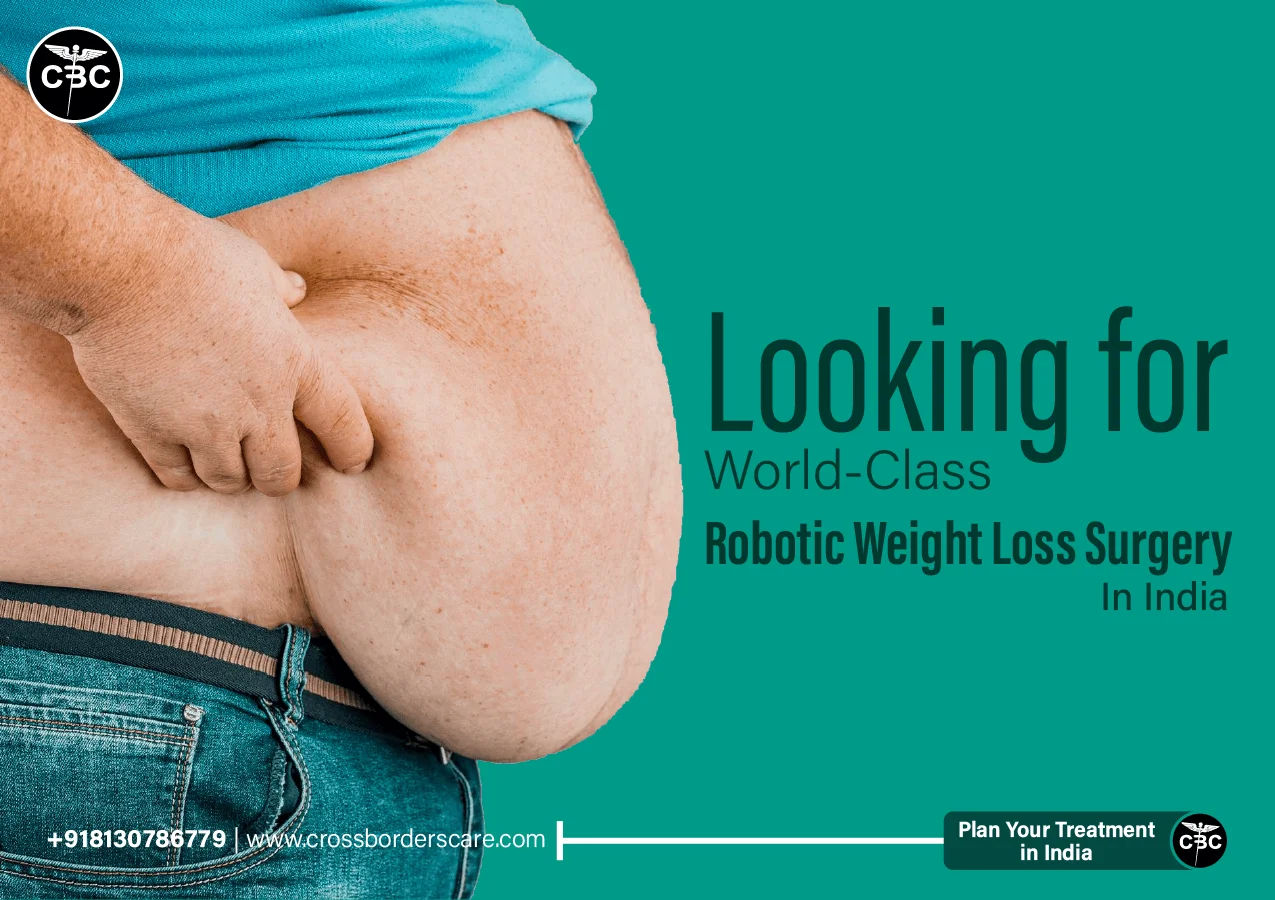Begin Cancer Treatment in India with a Simple Online Consultation
For many families in Ethiopia, the first step toward cancer treatment abroad feels overwhelming. Questions…

Globally, more than 1.9 billion adults are overweight and 650 million are obese. Approximately 2.8 million deaths are reported as a result of being overweight or obese.1Obesity and Type-II Diabetes (T2DM) have become pandemic. There are many ways to manage obesity; however the fastest and most dramatic option is Bariatric or weight loss surgery. It is considered to be safe and recommended for patients, who have co-morbid diabetes or hypertension and stand a higher risk due to obesity.
Most Indian hospitals have dedicated obesity and metabolic surgery Centers, which are at par with global standards. Delhi has become the hub for such centers, which caters to more than 100 such surgeries every month. These state-of-art Indian hospitals provide comprehensive treatment including obesity management, dietary and exercise consultation and a variety of patient specific surgical options such as sleeve Gastrectomy, Mini Gastric Bypass, Gastric Banding and Gastric Balloon Insertion. These surgeries are often called as Bariatric/ Metabolic or Weight loss surgery.
Cutting edge technology incorporating Laparoscopy and Robotics are employed to carry out precision based surgery using 4-6 small incisions (holes) in the abdomen. Also known as the Minimal Invasive Surgery, it offers significant advantages over the conventional methods of surgery. These include short hospital stay (~48 hours), faster recovery, less bleeding and risk of infections. Metabolic or weight loss surgery is very cost effective in India, especially so in Delhi, considering the availability of latest technologies and most capable doctors. Although, the costs vary depending of type of surgery and technology used, generally laparoscopic and Robotic surgery will cost around US$6000 and US$8000 respectively.
Body mass index (BMI) is a measure of body fat based on height and weight that applies to adult men and women. If the BMI is greater than or equal to 30 the person is Obese and needs medical intervention.
Often it is genetically linked. However it could be due to imbalance between calories intake and consumed.
Dietary and lifestyle modifications are recommended in early stages as preventive option. However in case of uncontrolled obesity or Diabetes, bariatric or weight loss or metabolic surgery may be highly recommended.
State of the art Laparoscope and Robots are used to carry out precise surgery using 4-6 small holes in abdomen thus, reducing food intake and holding capacity of stomach by surgical removal of stomach or internal folds of stomach. Advantages of minimal access surgeries (MAS) include, short hospital stay ~48 hours, faster recovery, less chance of bleeding and infection. The weight loss is achieved through following way after surgical intervention.
It is treatment of obesity and indicated when BMI is more than 40 Kg/M2. The US National Institute for Health suggests bariatric surgery for people having BMI over 40. However few studies suggest that weight reduction surgery is indicated for people having BMI above 35.
Around 99.9 %
Due to the minimal size of incision and quick healing times, it is a very safe procedure.
The initial evaluation by the consultant surgeon determines which procedure will be best suited for a patient. It could be through Laparoscope or Robot.
It improves overall health of patient by controlling sugar, weight, BP. It improves kidney functions, sleep apnea, COPD, acid reflux, infertility and impotency.
Generally 80% of excess weight is lost after one year of surgery
It depends on type of procedure, technology used, hospital quality accreditation and experience of surgeon etc. Standard cost of Laparoscopic and Robotic surgery in JCI accredited hospital is around US$6000 – US$9000 respectively.
Yes, it can be carried out in any age. However it is routinely performed in patients between 18 – 65 years.
Patient needs to stay in hospital for two days after surgery.
No, since it is done through minimal access (Laparoscope or Robot) so it won’t cause much pain.
For better healing patient would be kept on liquid diet for a month followed by semi solid and solid diet.
Patients can resume all their daily activities after one week of surgery. However, patients are advised to avoid strenuous exercise and activities for three months after surgery
Yes, a patient may develop loose skin after weight loss surgery. However this can be easily taken care of with a skin tightening surgery.
What is the cost of Bariatric or weight loss surgery in India?
Need assistance with advanced treatment for bariatric or weight loss surgery to be performed in India? Contact us today!
